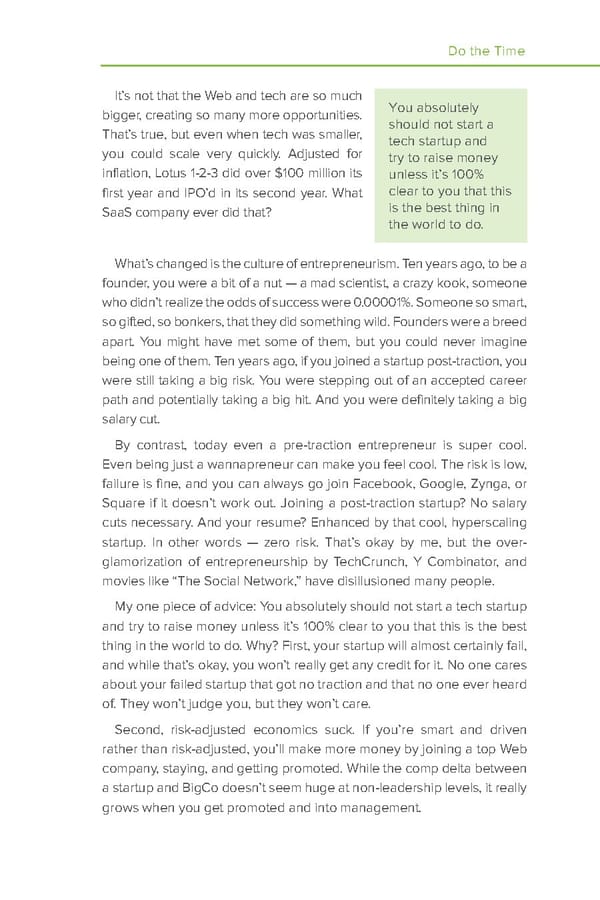Chapter 2 Do the Time It’s not that the Web and tech are so much bigger, creating so many more opportunities. You absolutely That’s true, but even when tech was smaller, should not start a tech startup and you could scale very quickly. Adjusted for try to raise money inflation, Lotus 1-2-3 did over $100 million its unless it’s 100% first year and IPO’d in its second year. What clear to you that this SaaS company ever did that? is the best thing in the world to do. What’s changed is the culture of entrepreneurism. Ten years ago, to be a founder, you were a bit of a nut — a mad scientist, a crazy kook, someone who didn’t realize the odds of success were 0.00001%. Someone so smart, so gifted, so bonkers, that they did something wild. Founders were a breed apart. You might have met some of them, but you could never imagine being one of them. Ten years ago, if you joined a startup post-traction, you were still taking a big risk. You were stepping out of an accepted career path and potentially taking a big hit. And you were definitely taking a big salary cut. By contrast, today even a pre-traction entrepreneur is super cool. Even being just a wannapreneur can make you feel cool. The risk is low, failure is fine, and you can always go join Facebook, Google, Zynga, or Square if it doesn’t work out. Joining a post-traction startup? No salary cuts necessary. And your resume? Enhanced by that cool, hyperscaling startup. In other words — zero risk. That’s okay by me, but the over- glamorization of entrepreneurship by TechCrunch, Y Combinator, and movies like “The Social Network,” have disillusioned many people. My one piece of advice: You absolutely should not start a tech startup and try to raise money unless it’s 100% clear to you that this is the best thing in the world to do. Why? First, your startup will almost certainly fail, and while that’s okay, you won’t really get any credit for it. No one cares about your failed startup that got no traction and that no one ever heard of. They won’t judge you, but they won’t care. Second, risk-adjusted economics suck. If you’re smart and driven rather than risk-adjusted, you’ll make more money by joining a top Web company, staying, and getting promoted. While the comp delta between a startup and BigCo doesn’t seem huge at non-leadership levels, it really grows when you get promoted and into management.
 Do the Time Page 6 Page 8
Do the Time Page 6 Page 8